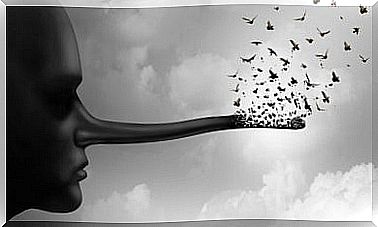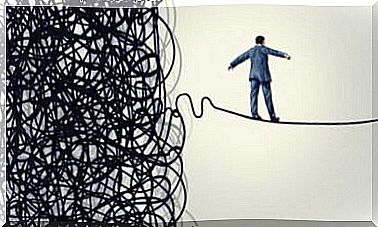Power Hurts And Sickens, According To Various Studies

Many of the people who agglutinate power move in their lives with questionable ethics. However, now it is science that shows that power hurts and sickens. It does not matter what type of power it is: in all cases it causes negative impacts on those who hold it.
The thinker Lord Acton stated: “power corrupts and absolute power corrupts absolutely. ” That is precisely why in real democracies a system of checks and balances is established that prevents, or tries to prevent, abuse and fraud.
However, all too often we see that the system does not serve this purpose . Amounts that do not appear, measures that benefit only those close to a certain political party, agreements with which some officials and businessmen fill their pockets at the expense of society, etc. Deep down, many of us intuit that power hurts and sickens. Why?

Power hurts and sickens
Several experiments by Dr. Dacher Keltner, a professor of psychology at the University of Berkeley, led this scientist to point out that power hurts and makes you sick. According to their findings, those who hold management positions, over time, become more impulsive and lose the ability to perceive risk and put themselves in the shoes of others.
Another researcher, Professor Sukhvinder Obhi of McMaster University in Ontario, Canada, reached a similar conclusion. In his opinion, the powerful have diminished their ability to understand the circumstances of others. The others do not count in the orientation of their actions.
Obviously, this is an obstacle to empathy. They systematically put their interests above those of others.
The reduction effect
It is called the reduction effect to a tendency present in the figures of power: to simplify to the maximum the reality of the other. This process is also often called “arrogance syndrome” or “disease of power.” It is most visible in those who have held a powerful office for a long time.
According to the English neurologist David Owen and professor at the School of Psychiatry and Behavioral Science at Duke University Jonathan Davidson, such a syndrome or effect is defined as: ” a disorder caused by the exercise of power, especially power associated with great success, and exercised for years without severe limits to its exercise “.
One of the typical manifestations of this disorder is contempt for others. Those afflicted with this disease are self-assured and complacent in their relationship with others and tend to exhibit attitudes of recklessness and incompetence with total cynicism.
In today’s world, a very marked component of exhibitionism is added to the above. Power figures feel that they must build an image of themselves similar to that of a star of the show. They invest a lot of time, energy and money in it. This, far from serving them to carry out their work, only increases their narcissism and egotism.

Is it possible to escape this?
Does power generate that effect in all cases? Is the premise that power hurts and makes you sick always true? The data indicate that, in any case, power decisively inclines to develop that kind of encapsulation in front of the world and, in particular, of impossibility to be aware, understand and attend to the needs of others.
It is very difficult for a person in the exercise of power, especially for a long time, to escape these effects. However, there are means to prevent the “disease of power” from gaining ground. The first of these is consecrated, but must be observed very scrupulously. It has to do with effective controls on power.
This is a kind of “ground pole” for the powerful. If operating limits are established on them, their enclosure in themselves and in their ego tends to be less. This is especially true for the classrooms, who are around the powerful and who applaud everything he does.
An effort around discretion, limiting public exposure and handling communication in a more serious way would also be advisable. Knowing the opinions of citizens, as well as being thoroughly informed about their living conditions (through news, letters, documentaries, etc.), helps to preserve empathy.









